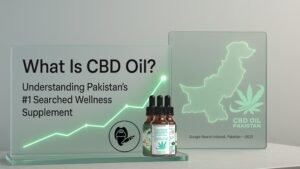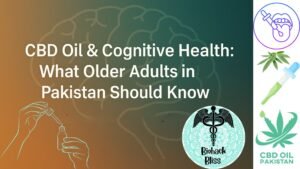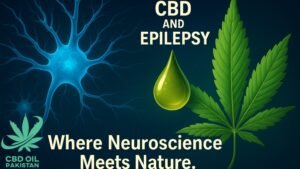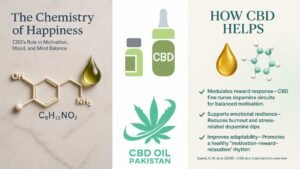As CBD oil gains popularity for its potential therapeutic benefits, it’s essential to understand how it may interact with prescription medications. While CBD has shown promise in managing conditions like anxiety, chronic pain, and insomnia, users should be cautious when combining it with other treatments, especially prescription medications. In this blog post, we will explore how CBD can interact with medications, its potential risks, and some guidelines to ensure safe usage.
How CBD Interacts with Medications
CBD, short for cannabidiol, is one of the many cannabinoids found in the cannabis plant. It interacts with the body through the endocannabinoid system (ECS), which plays a key role in maintaining balance or homeostasis. However, when taken alongside prescription medications, CBD can influence how your body metabolizes these drugs, potentially leading to both positive and negative effects.
One significant reason for this interaction is that CBD inhibits the action of certain enzymes, particularly the cytochrome P450 family of enzymes. These enzymes are responsible for metabolizing a large portion of medications prescribed today. When CBD inhibits these enzymes, it can slow down the metabolism of other drugs, causing them to remain in your system for longer periods.
Positive and Negative Interactions
The impact of CBD on medications can vary depending on the dosage, the type of medication you’re taking, and your body’s unique chemistry. At lower doses, CBD may not cause significant interactions, but at extremely high doses—8,000 to 10,000 mg or more—CBD has the potential to cause both positive and negative interactions with prescription medications.
Positive Interactions
In some cases, CBD may enhance the therapeutic effects of certain medications. For example, it might improve the efficacy of anti-seizure medications for those suffering from epilepsy. Some studies have shown that CBD can work synergistically with certain drugs to provide better relief, allowing patients to reduce their dosage and potentially experience fewer side effects.
Negative Interactions
On the other hand, high doses of CBD can cause negative interactions with prescription medications. For example, blood thinners like warfarin may remain in your bloodstream for a longer time if combined with CBD, increasing the risk of bleeding. This is why it’s essential to consult your doctor before adding CBD to your wellness routine, especially if you’re on prescription medications.
Watch for the Grapefruit Warning
A helpful tip to determine whether CBD may interact with your medication is to look for a “grapefruit warning” on the prescription label. Just like CBD, grapefruit can inhibit the cytochrome P450 enzymes, leading to slower metabolism of certain medications. If your medication comes with a grapefruit warning, it’s a clear sign that CBD could potentially cause similar interactions.
Space Out Your CBD Intake
To minimize the risk of adverse interactions, it’s a good idea to space out your CBD intake from your other medications. Avoid taking CBD at the same time as your prescription drugs to reduce the chances of them interacting in a negative way. Ideally, wait at least 2-4 hours between taking your medication and administering CBD.
Another way to mitigate risks is to start with a lower dose of CBD and gradually increase it over time, keeping track of how your body responds. By doing this, you can avoid overloading your system and reduce the likelihood of harmful interactions.
Conclusion: Speak with Your Doctor First
Before starting any CBD regimen, it’s crucial to consult with your healthcare provider. Your doctor can help you determine the safest way to integrate CBD into your routine while considering your prescription medications. By following their guidance, you can enjoy the benefits of CBD while minimizing any potential risks.
In conclusion, while CBD has many promising health benefits, it’s essential to use it wisely, especially when taking other prescription medications. Watch for the grapefruit warning, space out your doses, and always consult your doctor to ensure that CBD works safely with your medications.
By following these steps, you can make informed decisions about using CBD oil alongside your existing treatments, ensuring a safer, more beneficial experience.

What Is CBD Oil? The Complete 2025 Beginner’s Guide for Pakistan

🧠 CBD Oil & Cognitive Health: What Older Adults in Pakistan Should Know

🧠 CBD Oil and Epilepsy: The Science Behind Seizure Control in Pakistan

CBD and Dopamine: The Science of Motivation & Happiness

🧠 CBD Oil & ADHD in Pakistan: What 2025 Research Reveals About Focus, Calm & Neurobalance

Peer-Reviewed CBD Studies (Last 3 Months): What 2025 Research Reveals About Safety & Anxiety Relief

Vitamin D Deficiency in Pakistan? Here’s How CBD Oil Might Help
🥭 Why Vitamin D Deficiency Is a Growing Problem in Pakistan Despite abundant sunlight, Pakistan faces a silent epidemic: vitamin D deficiency. According to

How CBD Oil Boosts Stamina: A Scientific Look at Natural Performance Support in Pakistan
In recent years, wellness seekers and fitness enthusiasts across Pakistan have begun exploring natural alternatives to synthetic energy boosters. One compound rising to the top

CBD Vape Oil in Pakistan: The Science-Backed Solution for Stress, Pain & Anxiety
In 2025, wellness-focused adults across Pakistan are turning toward a modern solution grounded in ancient plant wisdom: CBD vape oil. With rising urban stress, climate-induced

CBD Oil and Sports Performance in Pakistan: What Athletes Need to Know in 2025
Introduction From cricket to CrossFit, athletes in Pakistan are seeking natural ways to support recovery, reduce pain, and improve performance. One solution gaining traction globally—and

CBD Oil for Fibromyalgia in Pakistan: A Science-Backed Alternative for Chronic Pain Relief
Fibromyalgia, a chronic condition characterized by widespread musculoskeletal pain, fatigue, and cognitive disturbances, affects an estimated 2% of the global population. In Pakistan, awareness and

CBD Oil for Stress Management in Pakistan: Discover the Biohack Bliss Botanical Blend
In today’s fast-paced, overstimulated environment—especially in urban centers like Lahore, Karachi, and Islamabad—stress is no longer a passing state. It’s a chronic condition affecting mental

